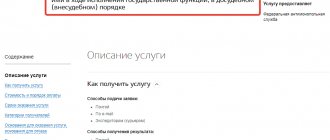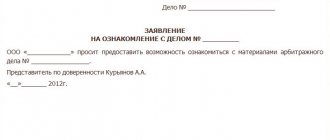For quite a long time, the Supreme Court of the Russian Federation has followed the path of reducing the load on the courts as much as possible. In this regard, in 2021, changes were made to the Code of Civil Procedure of the Russian Federation regarding the introduction of a relatively new procedural institution - consideration of cases through simplified proceedings. In the Arbitration Procedural Code of the Russian Federation, until this time (since 2012), provisions on simplified consideration of cases were already enshrined, but since 2021, changes have been made to some rules.
What are the features of abbreviated legal proceedings, how does it differ from the general and order procedures, as well as judicial practice in such cases, we will tell you in our article.
What does "simplified" mean?
This procedure involves consideration of claims both in civil and arbitration proceedings using a special procedure. Article 322.1 of the Code of Civil Procedure of the Russian Federation provides that this is an ordinary consideration of a claim, but in an abbreviated version.
Many compare this procedure with writ proceedings. Indeed, the lack of a thorough examination of all the evidence, the failure to interrogate witnesses and the absence of a stage of direct proceedings with the participation of the parties makes these procedures similar, but a court order presupposes the absence of a dispute, which may well exist in an abbreviated proceeding.
In accordance with the Code of Civil Procedure of the Russian Federation, judges are allowed to apply the rules on simplified procedures for statements of claim. The Arbitration Procedure Code of the Russian Federation provides for the possibility of using a short procedure not only for claims, but also for cases of administrative and other public relations. For example, an arbitration court has the right to consider an application to challenge a decision to impose administrative liability if the sanction of the article provides for a fine of 100,000 rubles.
This procedure can be applied both by judges of general jurisdiction and arbitration courts, and by magistrates. For example, in an abbreviated proceeding, a claim for the recovery of an amount not exceeding 50,000 rubles can be considered - the decision is made by a magistrate. If the amount exceeds 50,000 rubles, then by a district judge.
Question: Is it possible to consider a case using a simplified procedure if, in addition to the parties, third parties are indicated in the claim?
Previously, judicial practice on this issue was formed ambiguously. Some judges tried to adopt a general procedure in such cases, believing that the “simplification” could in one way or another affect the rights of other participants in civil legal relations. Later, the Supreme Court of the Russian Federation, in its clarifications, indicated the possibility of a simplified review if there are already third parties in the case by the time the claim is submitted to the court office.
The abbreviated procedure is characterized by the application of the rules of claim proceedings, with the exception of the following provisions:
- persons participating in the case, including third parties, are not notified;
- the court does not issue a document scheduling a court hearing;
- the court hearing is not actually held. Consequently, recording by recording and audio recording by the secretary is not carried out;
- due to the absence of a hearing, the courts do not use the rules of adjournment, interruption in consideration, as well as the legal requirements for reasonable time limits for consideration of cases;
- The time frame for appealing and the entry into force of a decision has been reduced.
The rules of jurisdiction remain unchanged: as a general rule, a claim is filed in the court that is territorially related to the defendant’s place of residence .
For which cases a shortened procedure is possible and about its features in civil and arbitration law, read below.
Legislative framework, article 49 of the Arbitration Procedure Code of the Russian Federation
According to the main standard of the Federation, which regulates this issue, the plaintiff has the right:
- during the consideration of the case in the arbitration tribunal of the 1st instance, before the final verdict is announced and the corresponding sentence is issued, file a petition and change the subject or grounds in order to increase or decrease the claims;
- the plaintiff has the right to refuse in whole or in part in the arbitration of the 1st instance or in the appeal;
- the defendant, in turn, has the right to admit the claims in full or in part in arbitration of any instance;
- on the basis of Chapter 15 of the Code, participants can complete a settlement case at any stage of the proceedings;
- if the plaintiff, in the process of filing an application, goes against the law in order to reduce claims or increase them, or if the defendant, in case of refusal, violates the requirements of the legislation of the Russian Federation, the judicial authorities have the right to refuse the petition and consider the case on the merits.
This is important to know: Claim for eviction from a municipal apartment: sample
Simplified proceedings in civil proceedings
In accordance with the provisions of Art. 232.2 of the Code of Civil Procedure of the Russian Federation, cases of the following categories are considered in the form of such proceedings:
- claims for the recovery of money if the amount does not exceed 100,000 rubles, with the exception of those cases that fall under the rules of writ proceedings. Thus, in simplified proceedings, claims for the collection of alimony, utility bills, wages, etc. cannot be considered.
- claims for reclaiming any property if its price does not exceed 100,000 rubles. How is the amount that should not exceed 100,000 rubles calculated? When calculating, not only the so-called “body” of the debt is taken into account, but also interest, fines, etc. If there are several claims, the total amount is calculated. For example, if a claim is filed for a debt of 99,000 rubles, but the plaintiff also demands interest in the amount of 17,000 rubles, then the case will be considered in the usual manner, since the price of the claim (116,000 rubles) exceeds the limit of 100,000 rubles.
- claims for recognition of ownership rights, if the price of the claim does not exceed 100,000 rubles;
- claims for collection under contracts or under such obligations of the debtor that are recognized by him, but for some reason are not actually paid (regardless of the amount). For example, when a contractor did not fulfill the terms of a contract with an individual, he responded to the claim with consent and assured that he would return the money later. Often this “later” stretches for years; the debtor refers to temporary financial difficulties and force majeure. In order not to miss the statute of limitations, the plaintiff files a claim for recovery, providing the same claim and response to it, the case is considered in an abbreviated manner.
Most often, such obligations to which the defendant agrees arise from lease agreements, loans, provision of services, etc. The following documents may confirm the validity of the recovery and the occurrence of an obligation on the part of the defendant:
- copies of contracts;
- acts of completed work;
- payment receipts;
- additional agreements;
- invoices and invoices;
- receipt;
- statement of account reconciliation, etc.
Even if the nature of the claim does not fall under any of the above points, the parties have the right, regardless of the amount of recovery, to independently declare a simplified procedure.
There may be the following options: the plaintiff declares this, and the defendant agrees, or vice versa; the court has the right, on its own initiative, to invite the parties to consider the case through summary proceedings, but with the obligatory written consent of both the plaintiff and the defendant. The Supreme Court of the Russian Federation in its clarifications clarified that the absence of objections cannot be considered consent, which must be clear and understandable, clearly expressed.
Let us clarify that if there are formal grounds for an abbreviated consideration (that is, those indicated above in four points), the consent of the parties is not required.
The petition is drawn up in free form and submitted along with the claim:
To the Chistorechensky District Court of Lipetsk
Plaintiff: Prokhorov K.V., living in Lipetsk, st. Dnevnaya, 12, apt. 5, Tel. 892534343
In a civil case regarding the recovery of an amount from the defendant Yakovlev E.S.
Petition for consideration of a case under simplified proceedings (sample)
On August 20, 2021, I sent a statement of claim to the court to collect the amount of debt in the amount of 76,000 rubles (principal - 55,000 rubles, interest for use - 11,000 rubles, expenses for a representative - 10,000 rubles) from E.S. Yakovlev.
Since the amount of collection does not exceed 100,000 rubles, a receipt acknowledging the debt in full was provided from E.S. Yakovlev, on the basis of Article 232.1 -232.4 of the Code of Civil Procedure of the Russian Federation,
ASK:
Consider the civil case based on the claim of Prokhorov K.V. to Yakovlev E.S. for the collection of a debt in the amount of 76,000 rubles through summary proceedings.
Prokhorov K.V., number, signature.
Such a request may be contained directly in the text of the statement of claim, this is permissible.
In practice, questions have arisen as to whether it is possible to consider claims for the recovery of real estate in a simplified manner, because usually the cost of a claim in such cases will greatly exceed 100,000 rubles. The Supreme Court of the Russian Federation clarified that a shortened procedure in cases of repossession of real estate is possible with the consent of the parties, regardless of the price.
What to do if, along with property claims, the claim contains non-property claims? For example, when is an application filed to declare a contract invalid with simultaneous recovery of damages and compensation for moral damage? In such situations, the court has the right to separate non-property claims into separate proceedings. If this is not possible, a simplified procedure for all requirements together is permitted.
After receiving a party’s request or if the court, on its own initiative, comes to the conclusion that a shortened trial is possible, this is indicated in the ruling on acceptance for proceedings.
Changing the subject and grounds of the claim: what is the difference
The basis is the rules of law and legislation that provide the plaintiff with the right to appeal to the courts. Their changes occur under the following circumstances:
- replacement of some factual or legal circumstances with others;
- addition of existing ones with new ones;
- withdrawal of a certain amount from existing circumstances.
The subject of the claim is the substantive legal claims of the plaintiff against the defendant, which are expressed in the submitted complaint. Their change occurs in the following case:
- replacement or addition of claims already made;
- withdrawal of claims or their presentation to another defendant, if such a possibility exists within the framework of controversial legal relations.
Important! The difference between these two concepts is as follows: the subject is the material claims against the plaintiff, and the grounds are the legal support for the general ability to appeal to the judiciary.
When a simplified procedure cannot be applied (in accordance with the Code of Civil Procedure of the Russian Federation)
The court issues a ruling to schedule the case for hearing in the usual manner if:
- a third party entered into the dispute and declared independent demands;
- a counterclaim has been filed;
- objections have been filed by one of the parties (most often, the defendant) regarding the simplified procedure and the court agrees with the arguments about the need to move to the general one;
- the court established the need to study evidence, as well as to request additional documents, calculations, and confirmations. For example, when the origin of the disputed right is unclear from the materials provided to the court or the amount does not correspond to the facts stated in the claim;
- there is a need to order an examination, call witnesses or inspect any object at its location;
- a claim has been filed, the resolution of which may negatively affect the observance of the rights of other persons who are not parties to the case. For example, when the content of the claim includes reclaiming a car from someone else’s possession, but it is registered to another person who is not involved in the proceedings. If the court makes a decision without examining the circumstances of the purchase of the car, the danger of absentee violation of property or use rights belonging to another person remains.
In addition to the above points, under no circumstances can a case be considered in an abbreviated manner if:
- going to court is related to administrative legal relations (for example, appealing the actions of government bodies);
- the claim concerns information related to state secrets. For example, cases in which it is necessary to request documents classified as “secret”;
- the dispute affects the interests of children (claims for deprivation or limitation of parental rights);
- the case concerns compensation for harm caused to human life and health;
- applications filed under special proceedings have been filed. The list of such cases is listed in Art. 262 Code of Civil Procedure of the Russian Federation. These are statements about establishing paternity, about adoption, about recognition as incompetent, dead, missing, etc.
- as we have already written, a case that falls under the category of cases of writ proceedings cannot be considered in short. We draw attention to the following: if an order was issued, but was subsequently canceled, or the application for a court order was immediately refused, a simplified procedure is possible. In such cases, the law obliges to attach to the case copies of the materials of the writ case (application, refusal to accept, etc.).
Grounds and circumstances for clarifying the claim
Clarification of the APC claim in court is an increase or decrease in claims regarding monetary recovery. For example:
- during the litigation, the rates increased due to the deterioration of the victim’s condition or the increase in his costs associated with applying to arbitration;
- cancellation of some claims due to a partial settlement between the defendant and the victim;
- forgiveness of a certain amount.
In addition, based on his claims, the applicant can change the essence and grounds on which they are based, but at the same time the pretentious order must be observed, which causes certain difficulties.
This may lead to the emergence of new additional defendants in the case, which in turn will make it necessary to carry out new procedural actions and a certain period of time.
Important! The fact of the presence of changes in the case will be reflected in the operative part, indicating the fact of such an action and its impact on the entire course of events.
At the same time, in accordance with the Arbitration Procedure Code, the plaintiff has the right to change the course of events at the appeal stage, partially changing his position or completely abandoning the claim. In this case, also on the basis of Article 49 of this Code, it is necessary to submit an application.
Review procedure
The actions of a judge who has received a statement of claim in a case that falls under the “simplified” or does not fall under, but there is a statement from the plaintiff, are as follows:
1. After the judge has accepted the case for proceedings in an abbreviated manner, the court sends the parties a ruling in which it is proposed , explanations and evidence to each other within a period of at least 15 days (calendar)
2. In the ruling on accepting the case, the court also indicates the date until which the participants have the opportunity to object to the abbreviated proceedings by sending additional documents and objections to the court and the parties within the period established by the ruling (at least 30 calendar days from the date of the ruling, and not less than 15 days from the previous set date).
In this case, it is important to submit to the court confirmation that all parties to the dispute have been sent an additional package of documents that was submitted to the court. Without such confirmation, the court has the right not to accept additional evidence until it is convinced that it has also been sent to the other party. Absolutely new documents that were not discussed in the evidence presented earlier cannot be presented under the guise of additional ones.
Objections regarding the order are drawn up in free form , they indicate the reasons for disagreement and (or) with an abbreviated order:
To the Leninsky District Court of Samara
Defendant Ponomarev E.N., living in Samara, st. Gribova, 43, apt. 5 Tel. 899373737
according to the claim of Krasnov P.E. to Ponomarev E.Sh. on reclaiming property (civil case No. 2652562)
OBJECTION to simplified procedure (sample)
At the request of the plaintiff Krasnov P.E., who filed claims against me, Ponomarev E.Sh., to recover property from my possession, a ruling dated August 21, 2021 was issued to assign the case under summary proceedings.
Since the Plaintiff has significantly increased the demands, in connection with which I will present new calculations, as well as witnesses, I consider it impossible to make a decision on the claim of Krasnov P.E. in this order.
Based on the above, guided by art. Art. 232.2-232.4 Code of Civil Procedure of the Russian Federation,
ASK:
Consider the statement of claim of Krasnov P.E. to Ponomarev E.Sh. on the recovery of property, in civil case No. 2652562, in the general procedure for claim proceedings. The ruling on assigning the case in summary proceedings is cancelled.
Ponomarev E.Sh., number, signature
It is clear that most often objections are sent to the court on behalf of the defendant, because plaintiffs are more interested in the speedy satisfaction of their claims in the form in which they are stated. At the same time, in cases where the plaintiff needed to provide new evidence, conduct an examination, make additional calculations and clarify requirements, a statement of claim to transfer to the general procedure or a petition can be submitted to the court and from it:
To the Leninsky District Court of Samara
Plaintiff Krasnov P.E., living in Samara, st. Mamaeva, 4, apt. 51 Tel. 894545455465
according to the claim of Krasnov P.E. to Ponomarev E.Sh. on the recovery of property from illegal possession and recovery of the amount (civil case No. 2652562)
Petition for withdrawal from simplified proceedings
Based on my petition in civil case No. 265262, the court issued a ruling dated August 21, 2021 to appoint the case through summary proceedings.
Since at present, taking into account inflation and the non-recognition of the claim by the defendant, I need to clarify the claims and appoint an additional assessment examination, it became necessary to move to the general procedure for the proceedings on my claim against Ponomarev E.Sh. about reclaiming property.
Based on the above, guided by art. Art. 232.2-232.4 Code of Civil Procedure of the Russian Federation,
ASK:
Consider civil case No. 265262 on my claim against Ponomarev E.Sh. on the recovery of property from illegal possession in the ordinary course of legal proceedings. The ruling on assigning the case in summary proceedings is cancelled.
Krasnov P.E., number, signature
Most often, the plaintiff submits such a petition after receiving a written disagreement with the claims from the defendant. Thus, the plaintiff understands that he will have to prove the legality and validity of his claims, which means he will have to consider the dispute in a general manner.
In the event that an objection or petition is received by the court within the period established by the court in the ruling, the summary proceedings are canceled and the proceedings begin from the very beginning. At the same time, if the court has moved to the usual procedure only because it is necessary to order an examination or examine evidence, there may be a transition without returning to the initial stage of the appointment, the consideration procedure will continue.
If objections are received by the court outside the time limits established by the ruling, but before a decision is made, the court may accept them if it is convinced that the reason for the omission is valid. Otherwise, if there is no such good reason, the documents are returned and a determination is made. If objections regarding the shortened proceedings were received by the court after the decision was made, the appeal procedure is explained to the applicant, and the documents are returned.
The law does not prohibit the parties from filing petitions, sending them to the court and sending copies to other participants. The court resolves such petitions without the participation of the parties, a ruling is issued, a copy is sent for review (for example, a petition to request information from a government agency that is relevant to the case);
3. The general period for simplified consideration is 2 months for the court from the date of receipt of the claim by the office. If for some reason the court does not have time to make a decision or, due to workload, does not have time to complete it within 2 months, a decision may be made to move to the general procedure. The procedural law does not prohibit the court from setting additional deadlines (except for 15 and 30 days) during which additional evidence may be provided.
4. If, before the decision on the case, the court does not have information about the receipt by the parties of a copy of the ruling on the assignment of the case sent to them, the transition to the general procedure is carried out. The same thing happens if information has been received, but it shows that the parties did not have time to familiarize themselves with the case materials (for example, due to a long illness).
5. The parties have the right to express a desire to conclude a settlement agreement. To do this, the court, without going into general procedure, sets a date when such an agreement is supposed to be approved. If approval does not take place on this day, then a ruling is made to consider the case in ordinary litigation proceedings.
6. Before the expiration of the two-month period, but after the deadlines established for the parties, the court must make a decision (its operative part). Only upon application or in case of appeal, the same judge who announced the operative part is obliged to draw up a reasoned decision. The application is submitted within 5 days from the date of signing the operative part:
To the Petrovsky District Court of Syzran, Judge Popova E.N.
Plaintiff Rabbi K.A., living in Syzran, st. Kitaeva, 2, apt. 12
In civil case No. 42424 according to the claim of Rabbi K.A. to Molchanov M.I. on debt collection
STATEMENT on making a full reasoned decision on the case
Based on the results of the consideration of civil case No. 42424 in my claim against M.I. Molchanov. a decision was made to forcibly collect the amount of debt from the defendant, the operative part of which was issued on August 27, 2021.
Based on clause 2 of Art. 232.4 Code of Civil Procedure of the Russian Federation,
ASK:
Make a reasoned decision in case No. 42424, send a copy to the address indicated by me in this application.
Rabbi K.A., number, signature
From the date such an application is received by the court, the court is obliged to draw up a full, reasoned text of the decision within 5 days (calendar). If there is no application, but there is an appeal, then this period is calculated from the moment the complaint is received.
7. A short decision adopted based on the results of the abbreviated consideration shall be sent to the parties and posted on the Internet no later than the next day. Moreover, on the 15th day from the date of issuance, it comes into force if no one files a complaint.
8. A full reasoned decision, if one has been drawn up, comes into force within 15 days from the date of its production, if there are no appeals.
9. The procedure for appealing a court decision made through summary proceedings presupposes compliance with the general rules of appeal. In a higher court, an abbreviated consideration of the arguments of appeals is carried out, without summoning persons, without keeping minutes, etc. – the same as in the first instance.
Simplified proceedings in arbitration proceedings
This procedure in arbitration cases (that is, in those where the parties are a legal entity or an individual entrepreneur) has been practiced for a long time and is quite often practiced. In general, the review procedure is the same as in civil proceedings, but there are differences:
- the cost of a claim in a case that is being considered in a simplified manner is no more than 500,000 rubles (if the party is a legal entity) and 250,000 rubles (for individual entrepreneurs). Before June 1, 2021, there were smaller amounts - 300,000 and 100,000 rubles, respectively;
- In addition to the usual demands for recovery, under the Arbitration Procedure Code of the Russian Federation, cases of challenging decisions of state bodies, as well as non-normative legal acts, can be simplified if they contain requirements for the payment of an amount not exceeding 100,000 rubles. For example, in a simplified arbitration procedure, an individual entrepreneur has the right to appeal the decision of the tax authority on additional assessment of income tax, fines and penalties, etc.;
- for the collection of mandatory payments (mainly taxes and fees), claims can be considered in a simplified manner if the amount of collection is from 100,000 to 200,000 rubles;
- cases of administrative offenses can also be considered if the sanction in the form of a fine does not exceed 100,000 rubles (we remind you that according to the Code of Civil Procedure of the Russian Federation such cases cannot be considered in an abbreviated manner);
- except for those cases in which the defendant recognizes the obligation but does not fulfill it, the same procedure may be followed by a claim based on a notarial protest of the bill of exchange for non-payment;
- Claims relating to challenging the actions of government bodies that are not related to the accrual and collection of any amounts are not subject to summary proceedings. For example, challenges to the actions of bailiffs are not subject to consideration in this manner;
- there cannot be a simplified procedure for corporate disputes, cases of protecting the interests of a group of persons or intellectual property, or bankruptcy applications;
- Documents confirming the existence of debt can be contracts, reconciliation reports, bank statements, etc. For tax claims - a tax return indicating non-payment within the period established by law;
- cases, regardless of the amount of recovery, can be considered in such proceedings if there is a clear consent of the parties (similar to the rule in force in accordance with the Code of Civil Procedure of the Russian Federation). The court has the right to offer the parties a simplified procedure, reflecting such a proposal in the ruling on accepting the statement of claim or preparing for the court hearing, and the parties have the right to express consent by sending it to the arbitration court website;
- The deadlines for submitting objections, evidence of substantiation of claims and the deadlines for providing the parties and the court with additional evidence are the same as in civil law - 15 and 30 days, respectively. At the same time, in accordance with the Code of Civil Procedure of the Russian Federation, these are calendar days, and in arbitration proceedings - working days (that is, excluding weekends and holidays);
- within 3 days, petitions that were filed within the period established by the court are posted on the website of the arbitration court. The parties have the right to express their opinion and send it electronically via the “My Arbitrator” Internet system. The decision based on the results of consideration of the application is also posted on the website no later than 24 hours after it is issued. The Code of Civil Procedure of the Russian Federation does not contain such requirements;
- On the official website of the arbitration court, not only the operative parts of the decision must be posted, but also the ruling on acceptance for proceedings, as well as other procedural documents in a complete list (no later than 5 days from the date of receipt of the claim in court). In this case, an application for a full reasoned decision can be submitted within 5 days from the date of posting the operative part on the official website. The Arbitration Procedure Code of the Russian Federation does not contain a norm, unlike the Code of Civil Procedure of the Russian Federation, on the mandatory sending of copies to the parties; posting on the website is sufficient;
- if an appeal is filed against the decision of the arbitration court, it must be posted along with the objections on the Internet;
- An arbitration court decision made in a shortened procedure is subject to immediate execution on the day the operative part is signed. There is no such rule in civil cases; a court decision is enforced after it enters into legal force.
Rules for preparing an application to clarify requirements
When preparing an application to clarify the requirements, several important points must be taken into account:
- the document should begin with a list that lists all participants;
- Next, you should indicate the essence of the controversial issues that led to the court;
- clarify the circumstances that caused the need to make adjustments;
- for example, if the plaintiff decided to reduce the claims, he must justify them by reference to legislative acts or other documents that provide the possibility of such changes;
- subsequently, it is necessary to set out the new requirements in a list;
- specify applications.
The attached documents are signed by the plaintiff and his representative if the latter has the appropriate authority.
Sample application for clarification of requirements for a claim
Clarification to an administrative claim to the court - sample
Such a statement regarding clarification of an administrative claim to the court has a sample formed in any form, but it would not be superfluous to observe the literacy and logic of positions when drawing it up, then the judges will quickly consider it and complete the entire process.








